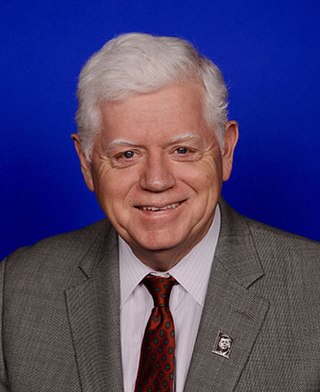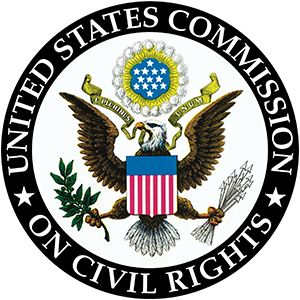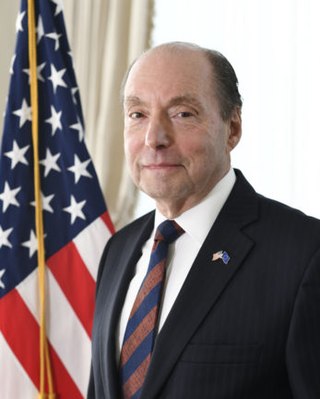The Fulbright Program, including the Fulbright–Hays Program, is one of several United States Cultural Exchange Programs with the goal of improving intercultural relations, cultural diplomacy, and intercultural competence between the people of the United States and other countries through the exchange of persons, knowledge, and skills. Via the program, competitively-selected American citizens including students, scholars, teachers, professionals, scientists, and artists may receive scholarships or grants to study, conduct research, teach, or exercise their talents abroad; and citizens of other countries may qualify to do the same in the United States.

John Barry Larson is an American politician and businessman serving as the U.S. representative for Connecticut's 1st congressional district since 1999. The district is based in the state capital, Hartford. A member of the Democratic Party, Larson chaired the House Democratic Caucus during the 111th and 112th United States Congress.
A commissioner is, in principle, a member of a commission or an individual who has been given a commission.
In the United States, an interstate compact is a pact or agreement between two or more states, or between states and any foreign government. The Compact Clause of the United States Constitution provides that "No State shall, without the Consent of Congress,... enter into any Agreement or Compact with another State, or with a foreign Power,..."

District of Columbia home rule is the District of Columbia residents' ability to govern their local affairs. As the federal capital, the Constitution grants the United States Congress exclusive jurisdiction over the District in "all cases whatsoever".

The U.S. Commission on Civil Rights (CCR) is a bipartisan, independent commission of the United States federal government, created by the Civil Rights Act of 1957 during the Eisenhower administration, that is charged with the responsibility for investigating, reporting on, and making recommendations concerning civil rights issues in the United States. Specifically, the CCR investigates allegations of discrimination based on race, sex, national origin, disability. In December 2023, Rochelle Mercedes Garza was appointed to serve as Chair of the CCR having been the youngest person to be appointed to the position.

The Commission on Elections, abbreviated as COMELEC, is one of the three constitutional commissions of the Philippines. Its principal role is to enforce all laws and regulations relative to the conduct of elections in the Philippines.

Stephen John Brademas Jr. was an American politician and educator originally from Indiana. He served as Majority Whip of the United States House of Representatives for the Democratic Party from 1977 to 1981 at the conclusion of a twenty-year career as a member of the United States House of Representatives. In addition to his major legislative accomplishments, including much federal legislation pertaining to schools, arts, and the humanities, he served as the 13th president of New York University from 1981 to 1992, and was a member of and subsequently the chairman of the board of the Federal Reserve Bank of New York. In addition he was a board member of the New York Stock Exchange and the Rockefeller Foundation.

Alice Constandina "Dina" Titus is an American political scientist and politician who has been the United States representative for Nevada's 1st congressional district since 2013. She served as the U.S. representative for Nevada's 3rd congressional district from 2009 to 2011, when she was defeated by Joe Heck. Titus is a member of the Democratic Party. She served in the Nevada Senate and was its minority leader from 1993 to 2009. Before her election to Congress, Titus was a professor of political science at the University of Nevada, Las Vegas (UNLV), where she taught American and Nevada government for 30 years. She was the Democratic nominee for governor of Nevada in 2006.
The Florida Public Service Commission (FPSC) regulates investor-owned electric, natural gas, and water and wastewater utilities. The FPSC facilitates competitive markets in the telecommunications industry, has authority over intercarrier disputes, and oversees pay telephones, the federal Lifeline Assistance Program and Telecommunications Relay Service.
Peter O. Price is chairman and chief executive of Premiere Previews, which invests in new media ventures. Price began his media career as a summer intern at The Wall Street Journal while attending Princeton University, where he graduated with honors in 1962. He subsequently graduated from Yale Law School, and then served as an officer in the United States Air Force before joining New York City government as counsel to the Taxi Commission, when he was also counsel to the New York Council on Child Psychiatry.

The U.S. Commission of Fine Arts (CFA) is an independent agency of the federal government of the United States, and was established in 1910. The CFA has review authority over the "design and aesthetics" of all construction within Washington, D.C. In accordance with the Old Georgetown Act, the CFA appoints the Old Georgetown Board. The Old Georgetown Board has design review authority over all semipublic and private structures within the boundaries of the Georgetown Historic District. The CFA was granted approval authority by the Shipstead-Luce Act over the design and height of public and private buildings which front or abut the grounds of the United States Capitol, the grounds of the White House, Pennsylvania Avenue NW extending from the Capitol to the White House, Lafayette Square, Rock Creek Park, the National Zoological Park, the Rock Creek and Potomac Parkway, Potomac Park, and the National Mall and its constituent parks.

The District of Columbia holds general elections every two years to fill various D.C. government offices, including mayor, attorney general, members of the D.C. Council, members of the D.C. State Board of Education, and members of its Advisory Neighborhood Commissions. Special elections may be held to fill vacancies at other points in time. Additionally, citywide ballot measures may be proposed and voted on.
In the United States, black conservatism is a political and social movement rooted in African-American communities that aligns largely with the American conservative movement, including the Christian right. Black conservatism emphasizes social conservatism, traditionalism, patriotism, capitalism, and free markets. What characterizes a "black conservative" has changed over time, and proponents do not necessarily share the same political philosophy.

The mayor of the District of Columbia is the head of the executive branch of the government of the District of Columbia. The mayor has the duty to enforce district laws, and the power to either approve or veto bills passed by the D.C. Council. In addition, the mayor oversees all district services, public property, police and fire protection, most public agencies, and the district public school system. The mayor's office oversees an annual district budget of $8.8 billion. The mayor's executive office is located in the John A. Wilson Building in Downtown Washington, D.C. The mayor appoints several officers, including the deputy mayors for Education and Planning & Economic Development, the district administrator, the chancellor of the district's public schools, and the department heads of the district agencies.
The Western Interstate Commission for Higher Education is a nonpartisan, regional interstate higher education compact and 501(c)(3) nonprofit organization based in Boulder, Colorado.
James W. Carr is an American educator. Carr was nominated by President George W. Bush to the National Security Education Board in 2005 and served in that capacity until 2011. In 2020 Carr was appointed by U.S House minority leader, Representative Kevin McCarthy, to the United States Commission on International Religious Freedom. Before retirement in 2019 Dr. Carr had served as a professor of business, senior vice president and executive vice president of Harding University in Searcy, Arkansas. Carr was appointed to the Arkansas Forestry Commission in 2004 by Arkansas Governor Mike Huckabee and was reappointed to the Commission in 2012 by Arkansas Governor Mike Beebe, during which time he served as vice chairman of the board. In 2015 Carr was appointed by Governor Asa Hutchinson to the Arkansas Higher Education Coordinating Board, where he served as chairman from 2018-2020. Dr. Carr has served on the board of directors of World Christian Broadcasting since 1993. From 1980 to 1984 Dr. Carr served on the board of directors of the Comsafe Company, a Jack Nicklaus-Golden Bear company headquartered in Tallahassee and West Palm Beach. He currently serves on the executive board of the Quapaw Council of the Boy Scouts of America, on the board of the Arkansas State Chamber of Commerce and on the Business Board of First Community Bank. He has been awarded twice with bronze medallions by The Arkansas Martin Luther King Commission for the promotion of racial harmony within the state.

Ronald J. Gidwitz is an American businessman, diplomat, and political candidate who served as United States Ambassador to Belgium, while also serving as acting United States Ambassador to the European Union.








